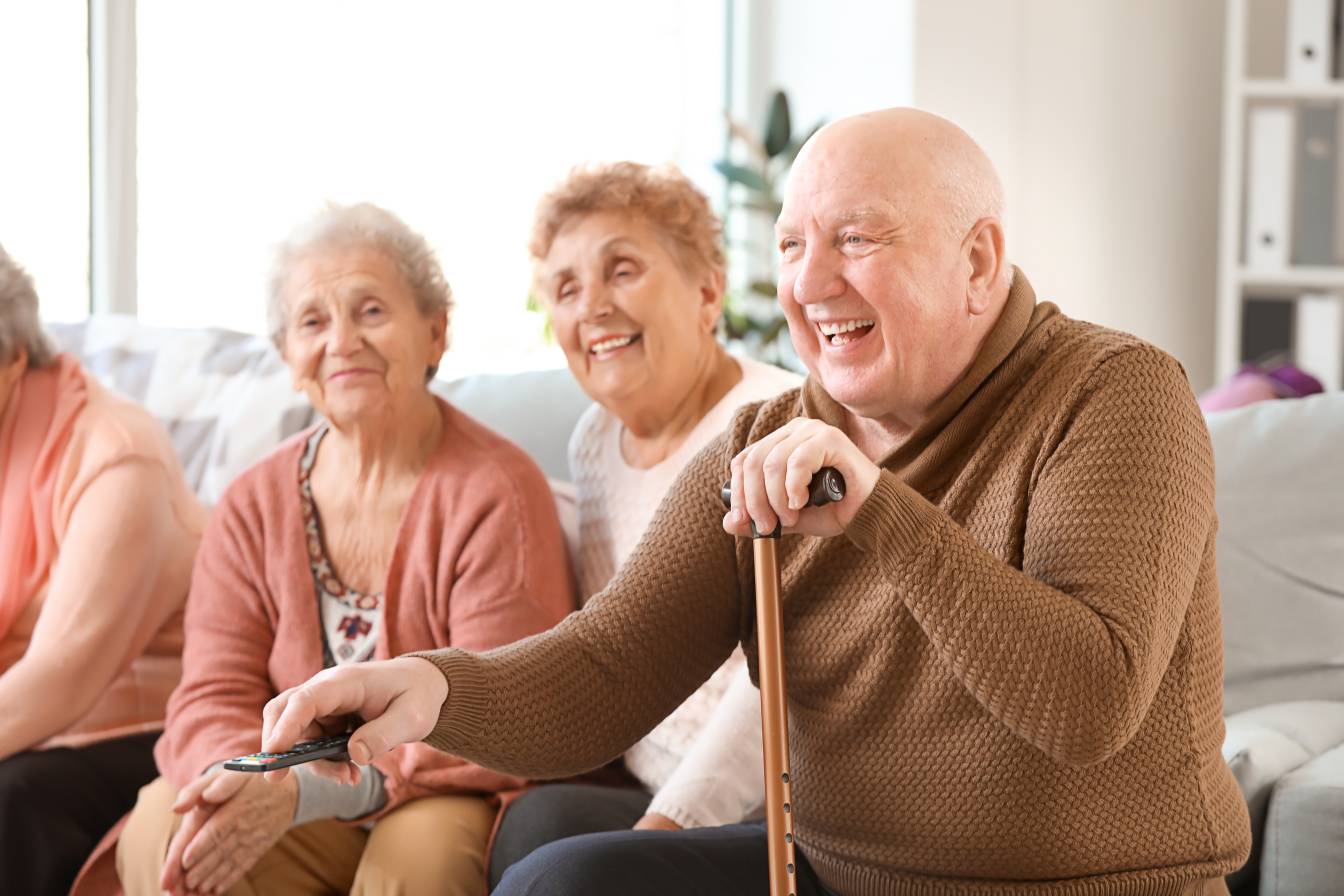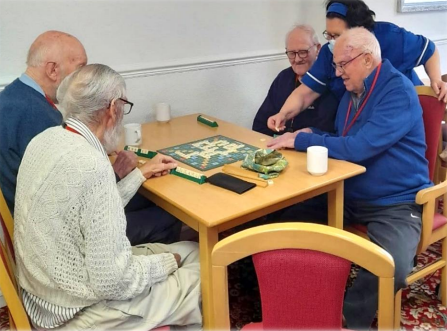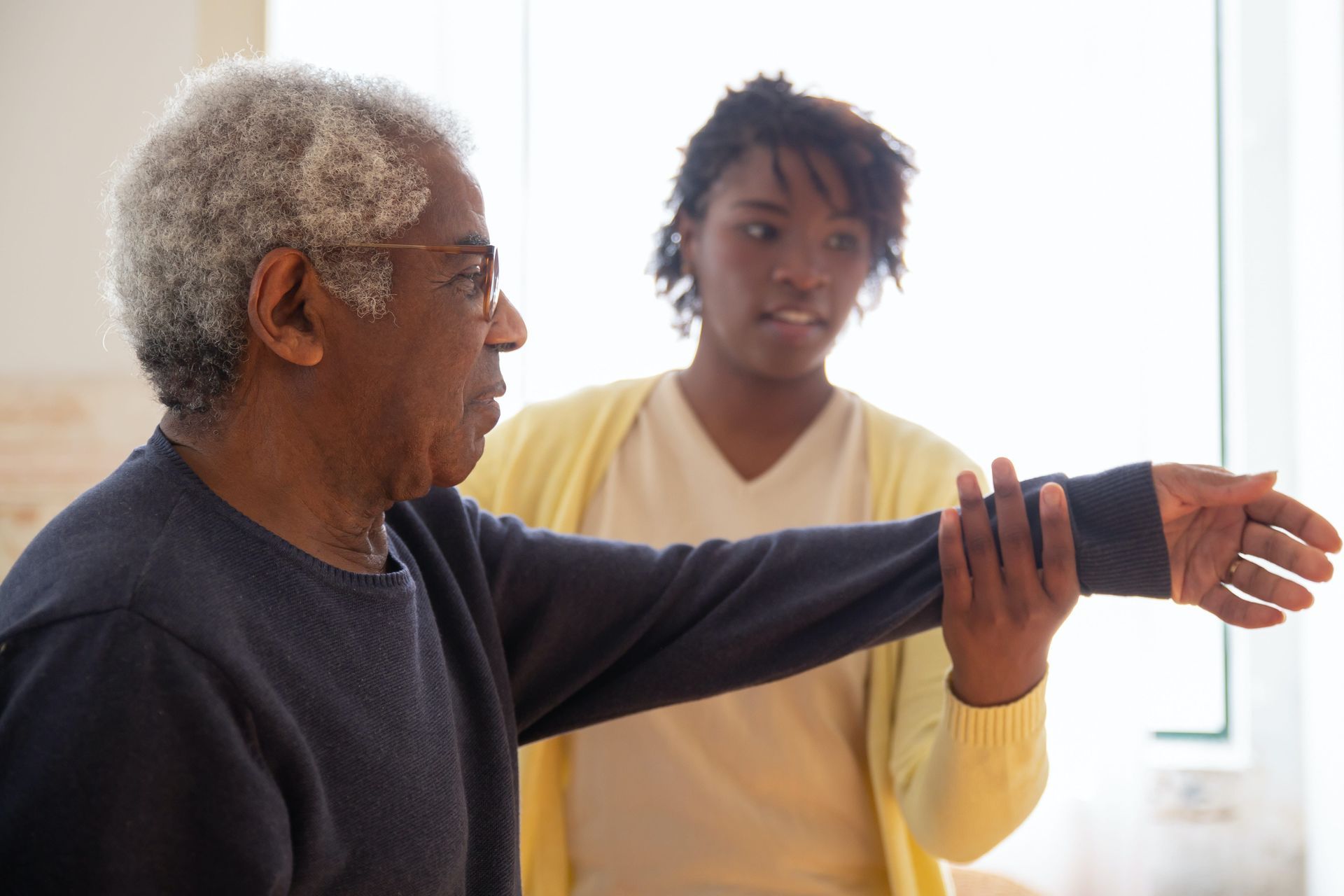Importance Of Social Interaction In Elderly People

Importance Of Social Interaction In Elderly People
As human beings, social interaction is one of the most important contributions towards living happy and fulfilling lives. Unfortunately, as we get older, the opportunities for social interaction may decrease.
There are many different reasons why this may be the case, but staying socially active remains vitally important for older adults’ mental and physical health.
At Avon Park Residential Care Home, we recognise the importance and numerous health benefits of adequate social interaction for the elderly. This article will discuss some of the causes and dangers of social isolation in older adults and how we can help you or your loved one stay socially active for a better quality of life.
What Counts As Social Interaction?
Before we go on, it’s important to understand what we mean by social interaction.
Social interaction should be an event or occasion that is enjoyable, entertaining, or meaningful. There should be a positive outcome that emotionally or practically supports both of the people involved.
A visit from a family member or neighbour, a friendly conversation with the local shopkeeper, or a phone call with a friend can all be considered examples of meaningful social interaction.
Older Adults & Loneliness
An older person who doesn’t have friends or family members to encourage and support them will almost certainly develop social isolation and loneliness. The symptoms of loneliness are strongly linked to an increased risk of heart disease, a vulnerable immune system, and high blood pressure.
The effects on mental health are also dangerous. A lack of social interaction can lead to depression, anxiety, and a decline in cognitive abilities. These can all bring on Alzheimer’s disease and even death.
According to
studies by Age UK, 1.4 million adults living in the UK admit to feeling lonely all or most of the time. More than a million of these people say they regularly go for over a month without speaking to a friend, family member or neighbour. It’s a sad statistic that just shows the scale of the issue with loneliness in older adults.
Why Is Social Interaction More Difficult For Older Adults?
Older adults can become cut off from society and socially isolated for a variety of reasons.
Getting older and weaker can make it difficult to make trips outdoors that we once completed with ease, such as visits to the shops, friends or family members’ homes, or our doctor’s surgery. There may be inadequate local transport links that would help older adults make these journeys.
Retirement from the workplace can also drastically reduce social interaction, and the death of a spouse or friends can be a crippling blow that causes or exacerbates grief and depression.
Some older adults also find it challenging to reach out and ask for help because they don’t want to burden their remaining friends, family, or anybody else who may help care for them. It’s a vicious cycle that can be difficult to break.
Of course, the Covid19 pandemic impacted everybody’s ability to interact socially with others, and older people have been some of the hardest hit. Even as restrictions ease, many older people may not feel safe enough to leave their homes, and visits from friends or family members may have become less frequent.
Whatever the cause, it’s vital to remain socially interactive in some capacity for the sake of mental and physical health.
The Benefits Of Social Interaction For Older Adults
We’ve already mentioned that remaining socially active is crucial for older adults’ mental and physical health. Now we’ll explain the positive impact and key benefits social interaction can have for older adults.
Physical Health Benefits
Keeping our hearts healthy is fundamental to good overall health. It’s important at any stage of our lives, and it becomes even more so as we get older. Increased social engagement reduces the risk of heart disease leading to a heart attack or stroke.
Social interaction is also likely to help older adults stay as mobile as possible, even if it’s an action as simple as getting up to make the cups of tea for a visitor. Mobility is important because it helps lessen the chance of problems such as arthritis, neurological disease, and other pains and diseases which can negatively impact the quality of life.
Mental Health Benefits
Research has given compelling evidence that better social engagement is good for the health of our brains. This is especially true for older adults since cognitive abilities can naturally decline as we get older, and loneliness can cause difficulty in thinking, remembering, and reasoning.
Social interaction can help encourage a sense of belonging, safety, and wellbeing in older adults. They’re likely to feel happier and experience less negative thoughts and feelings.
Keeping Socially Active For A Better Quality Of Life
While social interaction over the phone or via social media, face-to-face contact remains the best way to provide real, valuable, and meaningful engagement. In a study by psychologist Susan Pinker, she says:
“Face-to-face contact releases a whole cascade of neurotransmitters and, like a vaccine, they protect you now, in the present, and well into the future.”
It’s an exciting way to think of the protection against the physical and mental decline that face-to-face contact can provide.
With this in mind, here are some of the best ways the elderly can maintain face-to-face social interaction:
Clubs, Class, And Social Groups
Joining a club, class, or social group can be an excellent way for older adults to meet new people and keep physically and mentally active. The group may engage in an activity that’s familiar or completely new to the older person. Still, it should be something enjoyable for the maximum benefit to physical and mental health. Here are some widely available examples:
- Arts and crafts group
- Coffee mornings
- Cinema clubs
- Reading clubs
- Afternoon tea
- Walking clubs
- Gardening clubs
- Bingo And Quiz Clubs
Days Out
Some groups can provide field trips and excursions to groups of older adults, allowing them to visit museums, parks, musical performances, and other local attractions they not otherwise be able to see.
Some of these services may also look for older volunteers who can help organise and provide these events to other older people. This can significantly enhance the person sense of use and worth, as well as bring the happiness and accomplishment that comes with helping others in n
Group Exercises
A group exercise class can provide a fun and social setting to help older adults improve flexibility, balance, and mobility. Most groups will offer chair exercise classes for those who may struggle otherwise, and local leisure centres may have water aerobics sessions that can greatly benefit older adults with arthritis.
Keeping In Touch Over The Phone Or Social Media
Of course, for those who find it especially difficult to leave home or have a physical illness or disability that makes face-to-face interaction difficult or impossible, a simple phone call or chat via social media can make a world of difference to that person’s wellbeing.
Video calls have become especially popular after the pandemic. Services like Skype, Zoom and Whatsapp allow for face-to-face communication without two people being physically present to each other.
How We At Avon Park Residential Care Home Can Help
At Avon Park Care Home, providing and encouraging social interaction for our residents is a fundamental part of what we do.
We understand that many older adults like to remain as independent as they can. Aside from providing a safe and comfortable home for the elderly who need that little extra help in their day-to-day lives, we do everything we can to keep residents socially active, happy, and fulfilled.
Because we recognise the importance of contact with family and friends, we encourage social visits at any time that best suits our residents, without any time restrictions. We always provide a friendly and warm welcome and tea, coffee, and other light refreshments like biscuits and cakes.
When special occasions come around, we invite family and friends to come and share the celebrations. We also have a function lounge that can be booked, free of charge, for private celebrations.
Our highly trained, compassionate, and dedicated staff regularly organise a diverse programme of social and cultural activities to help residents stay mentally and physically active in a social setting. Engaging in these activities can combat the causes and effects of loneliness, and we encourage residents to get involved. If they do not wish to do so, for whatever reason, we always respect their wishes.
If you or a loved one are considering moving into assisted living, we are here to help with any of your enquiries. Just fill out
this contact form, click send, and one of our dedicated staff members will be in touch with you shortly after.






